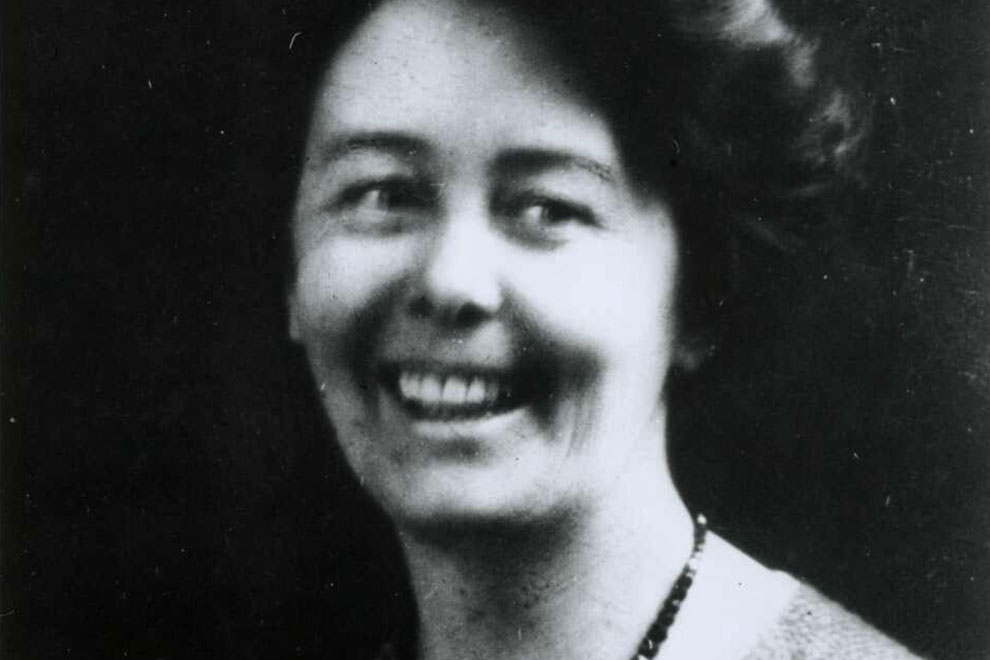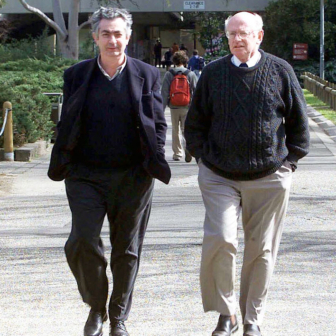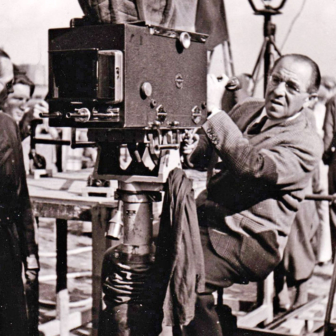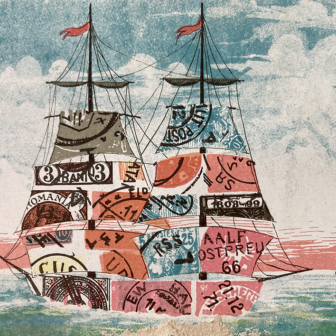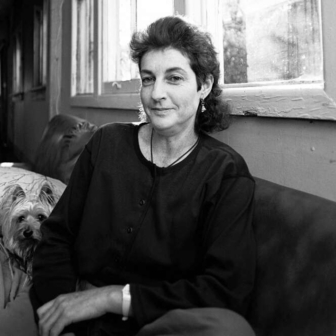In late February, Helen Garner found an email in her junk folder telling her she’d been awarded the Windham Campbell prize for nonfiction writing. Each year the prize awards US$150,000 to each of nine authors who write in English, regardless of nationality, across the genres of nonfiction, fiction and drama. There are no submissions and the writers are judged anonymously, with the aim of calling attention to their achievements and giving them an opportunity to work free of financial concerns. Apart from the award announcements in major papers, the “calling attention” part of the award comes with a literary festival at Yale University several months after the announcement; there, the writers come together for a formal ceremony and a few days of discussions and public lectures. It sounds like a writer’s dream.
Garner is not the first Australian to win a Windham Campbell award; the playwright Noelle Janaczewska was awarded a prize in 2014, its second year. Janaczewska may be little known outside Australian theatre circles, but she works across a range of genres, including what she calls “performance essays.” The award announcement mentions her play This Territory, written in response to the Cronulla riot of 2005, alongside a wide range of theatre works and collaborations. The acknowledgement of Garner mentions not only This House of Grief but also her remarkable ability to shift between fiction and nonfiction.
The prize’s interest in different genres reflects the fact that Donald Windham was a writer of short stories and essays, and his life partner, Sandy Campbell, was an actor and theatre reviewer. The awards are funded from their carefully managed legacy, and they seem directed by the interests of writers rather than the concerns of publishers or the desire for publicity.
Here in Australia we have more modest literary awards, some of them also funded from the legacies of writers and their families. Of these, the Miles Franklin, the Patrick White and the Barbara Jefferis awards are the best known. The Kibble and Dobbie awards for women writers are the legacy of a librarian, Nita Dobbie, who wished to honour her librarian aunt, Nita Kibble. As well as these named awards, literary societies, journals, publishing groups, libraries and communities offer a range of other rewards to writers each year.
With less reliability, we also have publicly funded awards, such as the Prime Minister’s and the Premiers’ prizes. Curiously, though they are funded from the public purse, these awards attract less public criticism than a private award such as the Miles Franklin. In fact, the Miles Franklin appears to be pre-eminent in terms of reputation and controversy. The Sydney Morning Herald’s recent obituary for Leonie Kramer gave more space to her role in the awarding of the Miles Franklin to Helen Darville (Demidenko) than to her years of teaching and supervising university students, let alone her decades of uncontroversial chairing of the award. Though the judges now get a small honorarium, in Kramer’s day they were lucky to get a free drink as recompense for the long hours spent poring over the entries.
As Ivor Indyk has commented, the Stella Prize “shadows” the Miles Franklin award. It was established as a response to the perceived failure of the Miles Franklin to acknowledge the writing of women. It looks for winners who are “excellent, original and engaging” and also runs a supporting program of book talks and events to promote the work of women writers. Three of its four winners have been novels, the fourth a history book.
Though it is too soon to know whether a “Stella” genre will emerge, this year’s winner, Charlotte Wood’s The Natural Way of Things, certainly raises questions about misogynist culture in Australia, suggesting the prize may take a position close to the Jefferis award’s search for an excellent work of fiction that depicts women and girls in a positive way “or otherwise empowers the status of women and girls in society.” The Jefferis winner can be written by a man, though none has won the prize (just as no non-Australians have won the Miles Franklin, though they are not precluded). Whether or not the Stella has influenced the Miles Franklin judges, the Franklin has gone to a woman each year since the Stella’s inception.
This plethora of prizes may be overwhelming to readers, but for writers in Australia, an English-speaking country with access to the literary publishing of the rest of the world, they offer a little financial support and, sometimes, help in building a reputation and boosting sales. It remains difficult for a literary writer to make any kind of living from publishing in Australia. With an estimated mean annual income for writers of about $12,500 from creative work, a serious literary author may well be grateful for any award that brings annual income closer to the $50,000 of the average Australian worker.
The catch is in the process of staggered longlist and shortlist announcements that goes with most Australian literary awards. Writing begins to look like a competitive sport, with losers eliminated in each round. (In practice, judges often find the winner at a first or second meeting, so shortlists are sometimes announced after the final decision has been made.) The desire for a big announcement ceremony means that organisers may keep the winner secret so that the shortlisted “losers” won’t be discouraged from attending. If you’ve been present when a prize has been announced and noticed unchosen writers carefully composing their faces or slipping speech notes back into a pocket, you will understand their reluctance to attend. The decision by some awards to give consolation cheques to shortlisted authors at least recognises this difficulty.
Some award managers seem to want books, like paintings or singing recitals, to be a communal public experience subject to a voicing of popular opinion. I recently took the opportunity to vote in the People’s Choice category of the NSW Premier’s prize for a novel; I had read only three of the six shortlisted novels, but that’s probably two more than many other voters. Promoting readers’ participation in this way seems harmless but it shouldn’t be mistaken for promoting the interests of writers. It would be fairer to them to release a long and inclusive list of all the good books that have a chance of the award, then simply announce the lucky winner.
For the winner will, indeed, be as much lucky as deserving. Judging panels are not absolute in their taste, and often harbour deep disagreements about the final choice. One forceful personality on a judging panel can drive everyone else into submission. In my various experiences as a judge, complete agreement usually came only on two-person panels. Once three or more judges are involved, the winner is likely to be a compromise candidate, and a safe one. Award managers sometimes seem ignorant or careless about the reputations of the judges they choose: the divided Prime Minister’s award for fiction in 2014 revealed a dispute between members of the judging panel, though some innocents seemed to believe that the prime minister had intervened to reward his personal favourite. As it happened, the Man Booker Prize judges later agreed that Richard Flanagan’s The Narrow Road to the Deep North was a winner.
Perhaps commentators take it quietly when odd things happen with politicians’ awards because they know that these awards are regularly endangered by political change. The Queensland Premier’s awards, for instance, disappeared when Campbell Newman came to power. A range of wonderful artists benefited from Paul Keating’s Creative Fellowships in the early 1990s, but the fate of the scheme was sealed as soon as the prime minister’s name became attached to them. Arm’s-length arts funding through the Australia Council was set up for good reason.
Judges will always have subjective taste, whether because of their academic training, their own reading experience or their place in the market; and in Australia’s small literary world, outright prejudices occasionally attach to particular writers. Despite any declared political commitments, though, judges are likely to be individualists rather than ideologues, and Australian literary judges have never been shy about publicly resigning on principle or declaring their abstention from a judgement. (Carmen Callil took this to an international level when she resigned from the judging panel that awarded the Man Booker International prize to Philip Roth in 2011.)
This is one of the ways that such awards stay in the news and gain extra publicity for writing. But it also detracts from the purpose of supporting writers to do their work. In my view, the funds for the various politicians’ awards would be better added to the severely depleted coffers of the Australia Council or to the state arts funds as part of their regular grants to writers.
In his survey of the Miles Franklin award in Australian Book Review a few years ago, Patrick Allington called for the publication of complete lists of all entrants, and more openness about the decision-making process. To me, the tactful approach of the Windham Campbell prize is more appealing because I can’t see that the public has any right to know how a private award is decided. It is all very well to barrack for the different possible winners, but we can hardly call for “freedom of information” rights.
Why shouldn’t the prize go to an excellent novel about “Australian life in any of its phases,” for instance, if that is the kind of writing its benefactor wanted to promote? If there has been a Miles Franklin genre, it has been the kind of monumental historical novel that Franklin herself wrote in her middle years: winners from Patrick White’s Voss to Thomas Keneally’s Bring Larks and Heroes, to Peter Carey’s Jack Maggs, to Roger McDonald’s The Ballad of Desmond Kale and Kim Scott’s That Deadman Dance conform to this genre.
It does seem that this kind of novel is usually written by men. A glance down the list of past winners shows that the prize on occasions has gone to more eccentric writing by Thea Astley, David Ireland, David Foster and Elizabeth Jolley, and to domestic novels like Jessica Anderson’s Tirra Lirra By the River and The Impersonators. But women have been less frequent winners, and first-novel winners are rare. (The controversial Darville was both a woman and a first-time novelist.) The striking thing is that so many Miles Franklin winners have been excellent novels. And this is the real test of a literary prize. The judges and their processes don’t really count. It is whether the novels stand up when read and reread over time.
By this standard, the Miles Franklin has picked more winners than losers over the years – which is not to say it hasn’t picked some weak novels from time to time. Occasionally there are years when there are several excellent novels in contention, and others when there are hardly any. Domestic novels have been rare winners, and comic novels rarer still. In fact, the absence of satire and humour has been a weakness across all Australia’s literary prizes. Andrew McGahan’s serious consideration of Australian history, The White Earth, won the Miles Franklin in 2006, but I doubt that his wonderfully funny 1988, published ten years earlier, was even entered. Fortunately, a farmer called Peter Wentworth Russell noticed this gap, and has left a legacy to fund a prize for an Australian work of humour, so far to be awarded every second year. (Bernard Cohen’s novel The Antibiography of Robert F. Menzies won the inaugural prize last year.)
So, if you feel inclined to leave your estate to support literary writing in Australia, learn the lessons of these various awards. The admirable Patrick White award takes no submissions, with its judges quietly reviewing the body of work of living Australian writers before announcing the winner. There is no need to insult any other writers by shortlisting and elimination, as their chance may well come the next year. There is no need even for a recent book to promote, as the prize is based on a body of work.
If you want to promote a certain kind of writing by setting guidelines beyond excellence, then you will create difficulties. Changing attitudes change definitions: sixty years after Miles Franklin’s death, “Australian life in any of its phases” is not such a clearcut ideal; and one can debate at length what constitutes a positive image of women, or a contribution to their improved status. Even humorous writing is a subjective category. The biographical/biological qualification for writers may not present immediate difficulties – young writers, women writers, new writers, Indigenous writers – but the possibility for imposture lies forever in wait (remember Paul Radley and Wanda Koolmatrie?). Surely the only way to avoid difficulties is to concentrate firmly on the writing, not the writer.
The Windham Campbell prize offers another idea worth considering. For all the public celebrations of writing at literary festivals, there is a paucity of deep critical engagement with contemporary Australian writing. Our literary life would benefit immensely from some sustained critical discussion of the work of winning authors. This might not be possible for individual prizes where first books often win – but surely some enterprising literature department at an Australian university could organise a seminar for the serious study of the work of the winner of the Patrick White award each year, perhaps addressing the backlog of winners by considering three or four at a time. •
